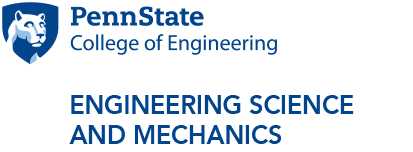Mechanical Behavior Lab
A fully equipped mechanical testing facility is available for testing metals, composites, ceramics, and polymers. Test results are typically deformation, stiffness, strength, fracture toughness, or fatigue related. Both materials constitutive behavior tests and structural component tests are feasible.
The facility features three closed-loop servohydraulic test machines: one having a 55,000 pound capacity in tension, a 20,000 inch-pound capacity in torsion, and a 3,000 psi internal pressure capacity, and the other two having a 20,000 pound capacity in tension. The large machine is controlled by an MTS TestStar II controller and the smaller machines are controlled by MTS 458 controllers and Labview software. Hydraulic wedge or collet grips are used.
A 7.5kW induction heating system can be used to heat samples on any of these systems, and fracture mechanics test fixtures (for bending and compact tension) are available.
Strain measurement at room temperature is made with strain gages or extensometry, while at elevated temperature, either an axial-torsion extensometer or an axial extensometer is used.
Ancillary equipment includes: 10-channel signal conditioning amplifier, portable field computer with nine channels for data acquisition, personal computers, oscilloscopes, temperature controller, 10 channel thermocouple display, 3-axis accelerometer, and strain gage bonding kits.
Key Faculty:
Facilities and Labs
- Advanced Microscopy Lab
- Biodetection Lab
- Biomimetics Lab
- Bioprinting Lab
- CNEU Teaching Cleanroom
- Composite Materials Lab
- Corrosion Research Lab
- Fourier Optics Lab
- Mechanical Behavior Lab
- Nanofabrication Lab
- Non-linear Dynamics Lab
- Optoelectronics Lab
- Penn State Ultrasonics Lab
- Semiconductor Spectroscopy Lab
- Soft Matter Mechanics Lab
- Tribology/Materials Processing Lab





